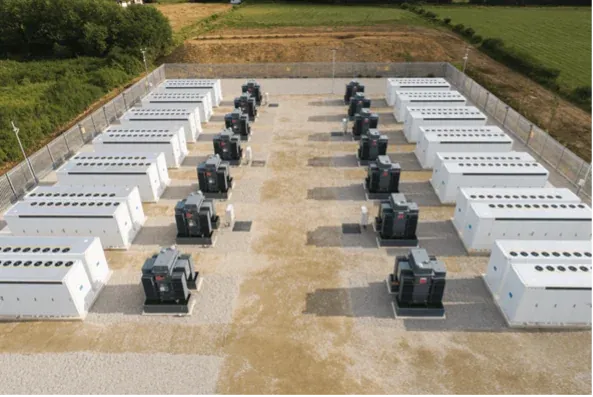Battery Energy Storage Systems (BESS)
Service Position Statement: October 2023

HWFRS recognise that BESS are a fundamental part of the UK’s move towards a sustainable energy system. In the UK, approval for the majority of BESS installations takes place through the Local Authority planning process.
Whilst the Fire Service is not a statutory consultee, HWFRS encourage early and continuous engagement throughout the planning process – please email us at bconsult@hwfire.org.uk
HWFRS’s expectations align to professional BESS Guidance from the National Fire Chiefs Council. The basis of this advice is that a comprehensive risk management process must be undertaken by operators to identify hazards and risks specific to the facility and develop, implement maintain and review risk controls. From this process a robust Emergency Response Plan should be developed.
This guidance has been developed with the safety of the public and emergency responders in mind, and recognises that the ultimate responsibility for the safe design and running of these facilities rests with the operator.
The following principles should be considered by owners, developers and operators:-
- 1. Effective identification and management of hazards and risks specific to the siting, infrastructure, layout, and operations at the facility.
- 2. Impact on surrounding communities, buildings, and infrastructure.
- 3. Siting of renewable energy infrastructure so as to eliminate or reduce hazards to emergency responders.
- 4. Safe access for emergency responders in and around the facility, including to energy storage infrastructure and firefighting infrastructure.
- 5. Provision of adequate water supply and firefighting infrastructure to allow safe and effective emergency response.
- 6. Vegetation sited and managed so as to avoid increased bushfire and grassfire risk.
- 7. Prevention of fire ignition on-site.
- 8. Prevention of fire spread between site infrastructure (solar panel banks, wind turbines, battery containers/enclosures).
- 9. Prevention of external fire impacting and igniting site infrastructure.
- 10. Provision of accurate and current information for emergency responders during emergencies.
- 11. Effective emergency planning and management, specific to the site, infrastructure and operations.
- 12. Owner to have a comprehensive Emergency Response Plan, showing full understanding of hazards, risks, and consequences.
For the NFCCs Grid Scale Battery Energy Storage System planning guidance for FRSs, click here.